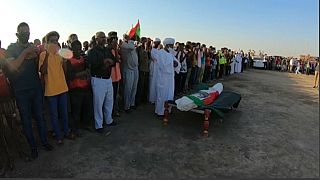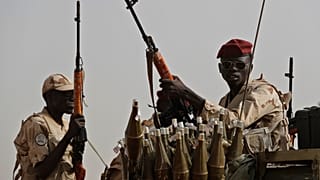Criticism
Sudanese Prime Minister Abdullah Hamdok renewed his criticism of the army and security services, deeming "unacceptable" their predominant weight for years in the country's economy.
The military and the leaders of the popular protest that defeated autocrat Omar al-Bashir in April 2019 reached an historic agreement in August 2019 for a gradual transfer of power to civilians.
But in recent months relations between the civilian-run government and the military have deteriorated.
"Every army in the world invests in defence companies, but it is unacceptable for the military and/or security services to do so in (other) productive sectors and thus compete with the private sector," Hamdok said at a press conference Monday evening after Washington removed Sudan from its blacklist of countries supporting terrorism.
He was questioned about a law passed by the US Congress on 8 December on "Sudan's democratic transition, (financial) accountability and transparency".
This law stipulates that "civilian control must be established over the finances and assets belonging to the security forces", which includes the military.
It also stresses the need to "transfer all ownership of these companies to the Ministry of Finance or any other entity accountable to the civilian power".
This law "will help the transitional government to advance democratic transformation," Hamdok said.
According to the local press, the army and security services control 250 companies in vital areas such as gold, gum arabic, meat exports, flour or sesame.
These companies are exempt from income tax and operate in total opacity according to the press, while the country is plunged into economic stagnation.
The head of the Sovereignty Council, the country's highest executive body, General Abdel Fattah al-Burhane, also head of the army, refuses to transfer these companies to the government, saying he is only willing to have them pay taxes.
This summer, Mr. Hamdok had deplored that "only 18% of the state's resources are in the hands of the government".
He then made it a "priority" to return companies belonging to the military and security sectors to the government.











01:22
Nigeria security chiefs report progress in rescuing kidnapped students
01:05
Madagascar's Gen Z protesters angry at coup leader's choice of prime minister
01:08
Madagascar coup leader Michael Randrianirina names businessman as new prime minister
01:10
Israeli airstrikes hit Southern Lebanon, six injured
Go to video
Madagascar military declares takeover following President’s impeachment
01:04
Madagascar president names army general as new prime minister